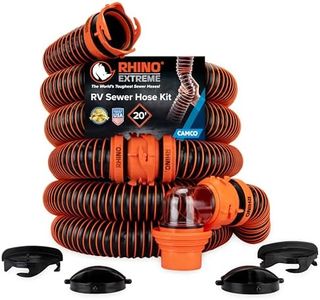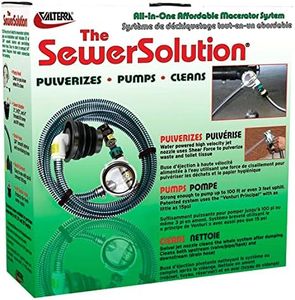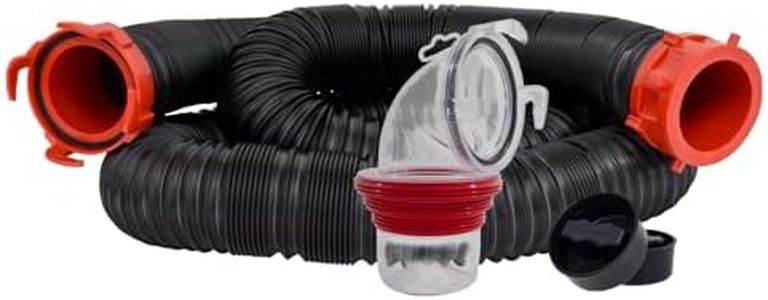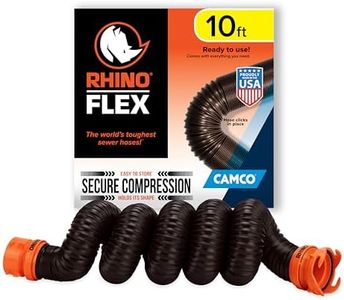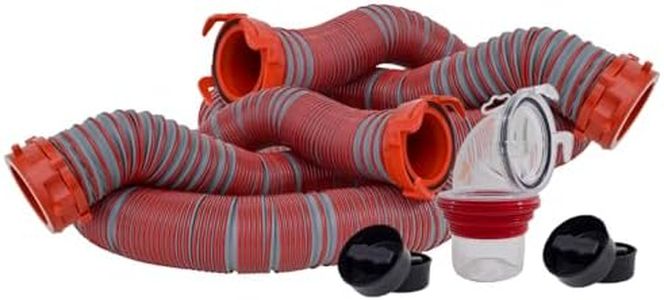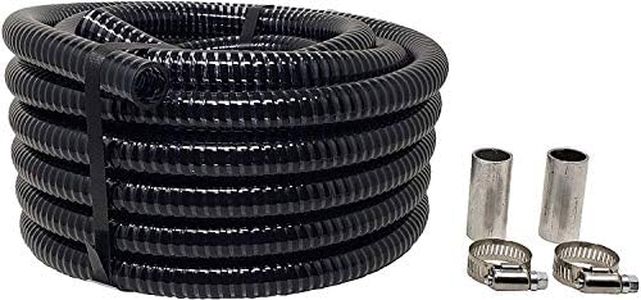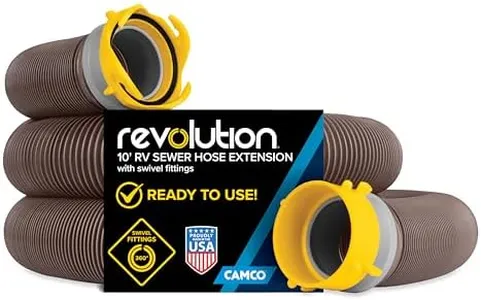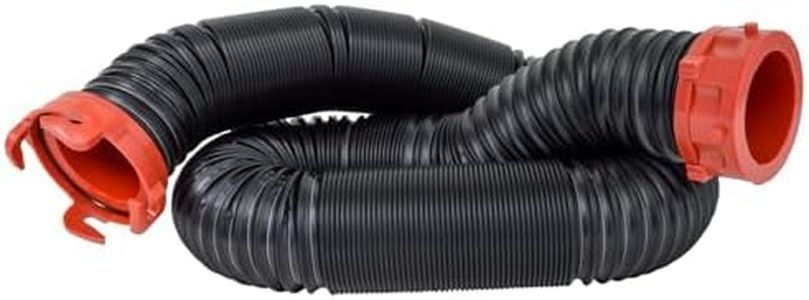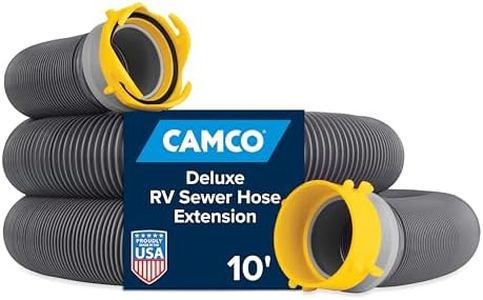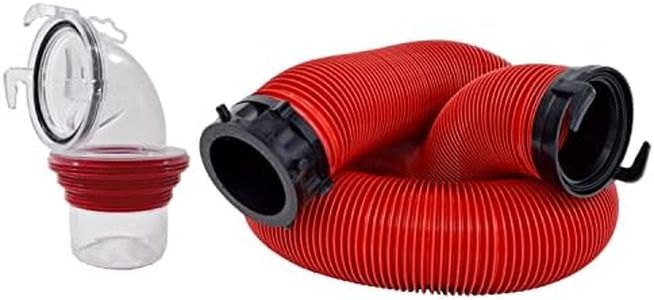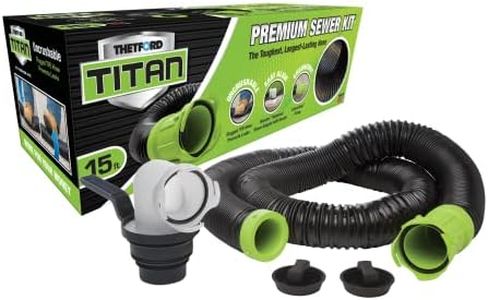We Use CookiesWe use cookies to enhance the security, performance,
functionality and for analytical and promotional activities. By continuing to browse this site you
are agreeing to our privacy policy
10 Best Rv Sewer Hoses
From leading brands and best sellers available on the web.By clicking on a link to a third party's website, log data is shared with that third party.
Buying Guide for the Best Rv Sewer Hoses
Choosing an RV sewer hose is an important part of ensuring a clean and hassle-free experience when emptying your RV’s waste tanks. The right sewer hose will make the process as sanitary, simple, and efficient as possible. There are several features and specifications to consider that will impact the overall performance and suitability of the hose for your particular RVing style. Understanding these options will help you pick the right product for your needs and prevent unpleasant surprises on the road.Hose LengthHose length determines how far you can park your RV from a dump station or sewer connection. Hoses typically range from about 10 to 20 feet, though extensions are available. Shorter hoses (10-15 feet) are more compact and easier to store, making them ideal for tight campsites or RVers who usually have sewer hookups nearby. Longer hoses (15-20+ feet) provide more flexibility in positioning your RV and reaching distant connections but can be bulkier to store and manage. To pick the right length, consider the typical layout of the campsites or dump stations you use and whether you value compactness or reach more.
Hose DiameterMost RV sewer hoses have a standard 3-inch diameter, which matches most RV waste outlet fittings and provides good flow to reduce the risk of clogs. Some hoses may be slightly smaller or larger, but three inches is the common and recommended size. Be sure to check your RV’s outlet size and aim to match it, as a proper fit ensures safe and efficient waste disposal.
Material and ConstructionThe material and build quality of the hose affect its durability and ease of use. Sewer hoses are usually made from various plastics, with thicker, reinforced materials offering better resistance to punctures, abrasion, and UV damage. Lightweight hoses are easier to handle but can wear out more quickly. Heavy-duty hoses are suitable for frequent or long-term use, while lighter options may work for occasional weekend trips. If you plan to use your hose regularly or in tough environments, a reinforced, crush-resistant hose is a smart choice.
Flexibility and CompressibilityFlexibility makes setting up and storing your sewer hose much easier, especially if you need to navigate bends or obstacles. Compressible hoses can be collapsed for storage and extend when you need them, saving valuable space in your RV. However, super-flexible hoses can sometimes be more prone to collapsing while in use or kinking. Pick a hose with a good balance of flexibility and structural integrity based on your storage needs and the complexity of your typical setups.
Fittings and ConnectionsThe hose ends and their fittings determine how easily and securely you can attach the hose to your RV and to a sewer connection. Look for hoses with pre-attached, leak-resistant fittings—often called bayonet or lug-type connectors. Swivel fittings help prevent twisting and make connections simpler. Clear connectors can let you see when the tank is clean during flushing. If you want maximum convenience and minimal mess, choose a hose with secure, easy-to-use fittings that match your RV and typical dump station connections.
Storage ConsiderationsWhere and how you plan to store your sewer hose matters, as some hoses are designed to fit in standard bumper storage tubes while others are bulkier. If you have limited storage space, consider the collapsed length of the hose and whether it will fit in your storage compartment. Some hoses come with carrying cases or storage caps to contain odors and drips, which can be helpful for cleanliness and organization. Think about your RV’s storage setup when picking a hose.
